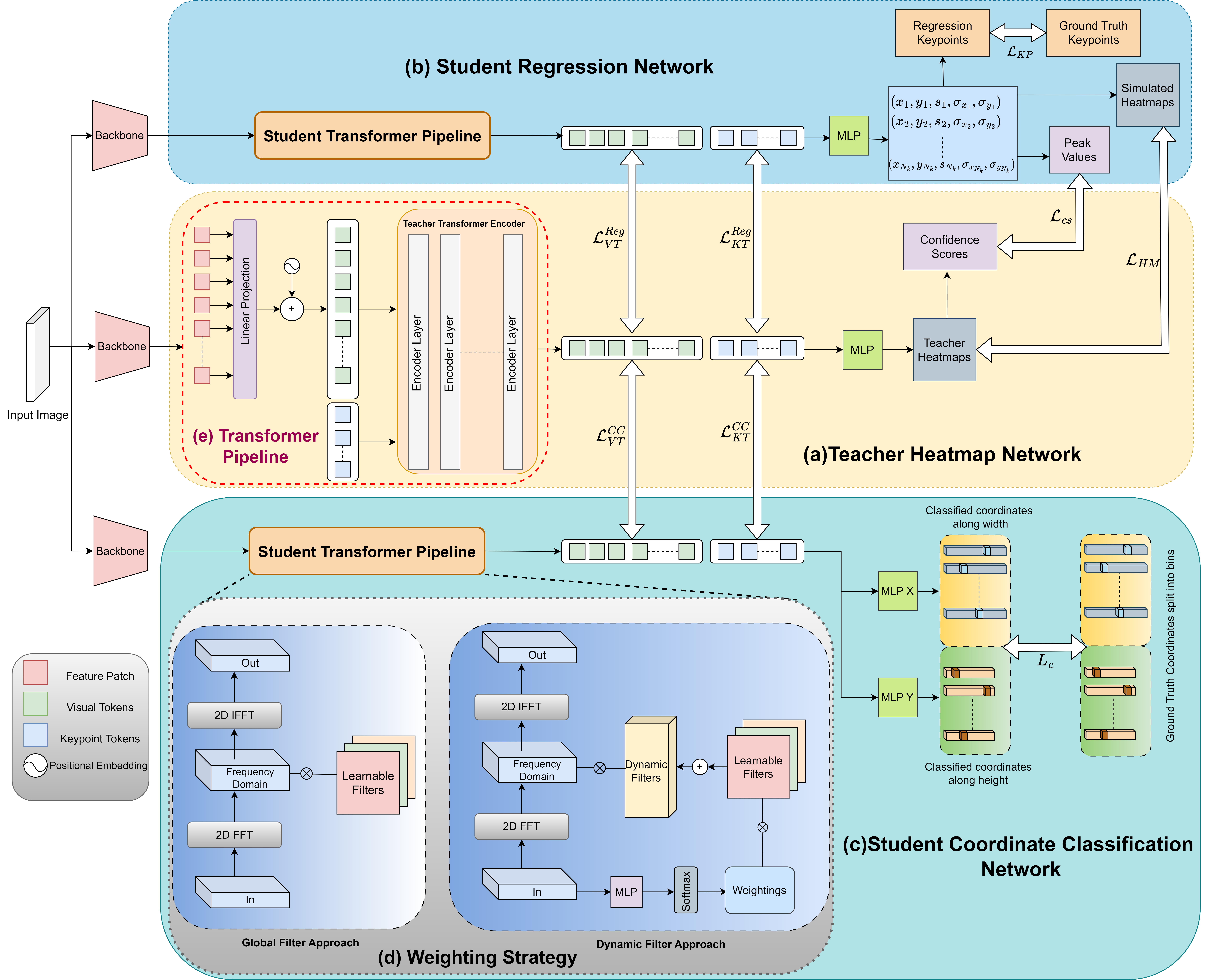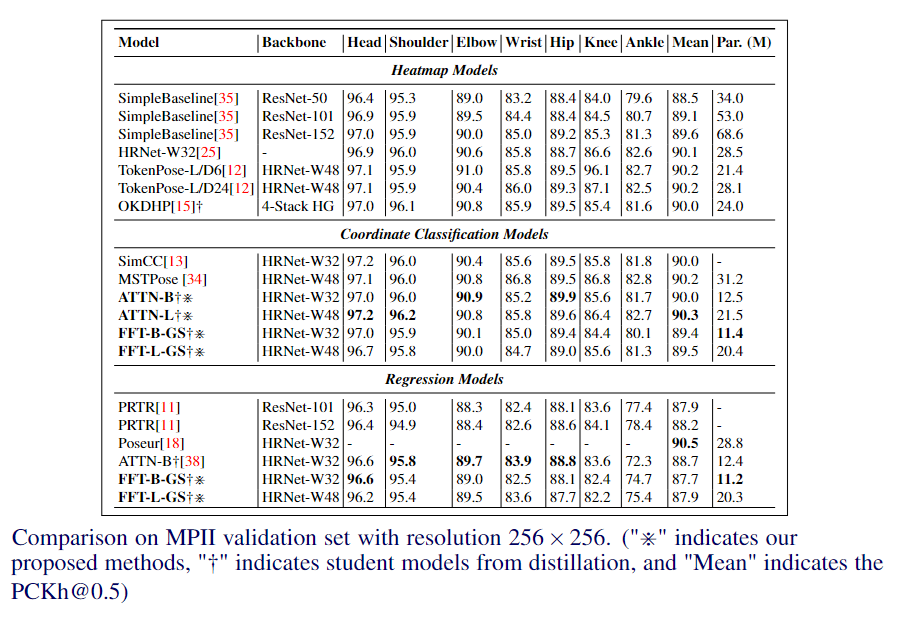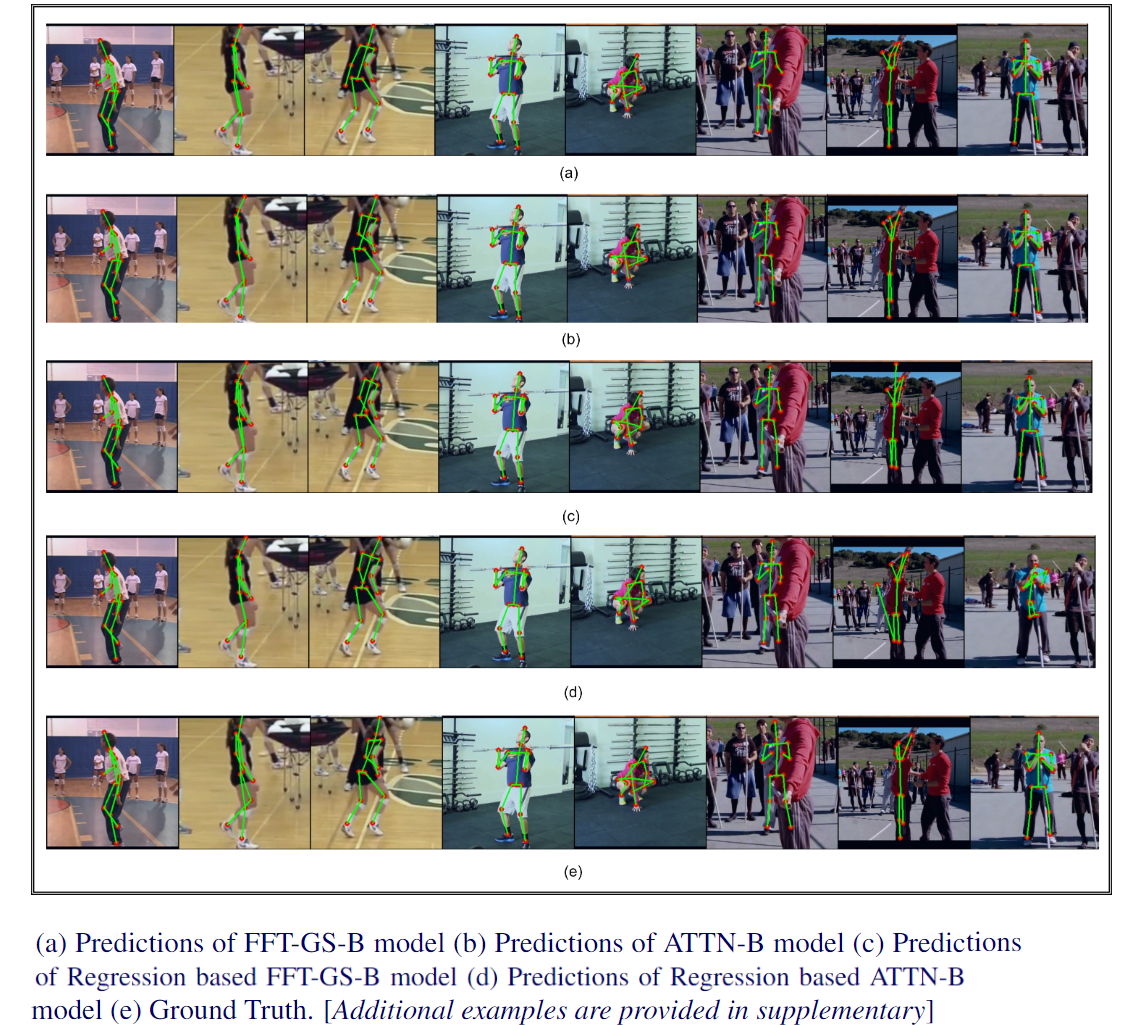The main contributions of our work are as follows:
- Introduce a novel distillation framework between a heatmap-based teacher model and a coordinate classification student network, which significantly reduces the performance gap between large Human Pose Estimation (HPE) models and lightweight counterparts.
- Investigate the integration of Global Filter Layers (GFLs) as a substitute for the computationally intensive Self-Attention modules in student networks, aiming to achieve faster inference speeds.
- Examine the effects of implementing Dynamic and Static Weighting strategies within Global Filter Layers.


